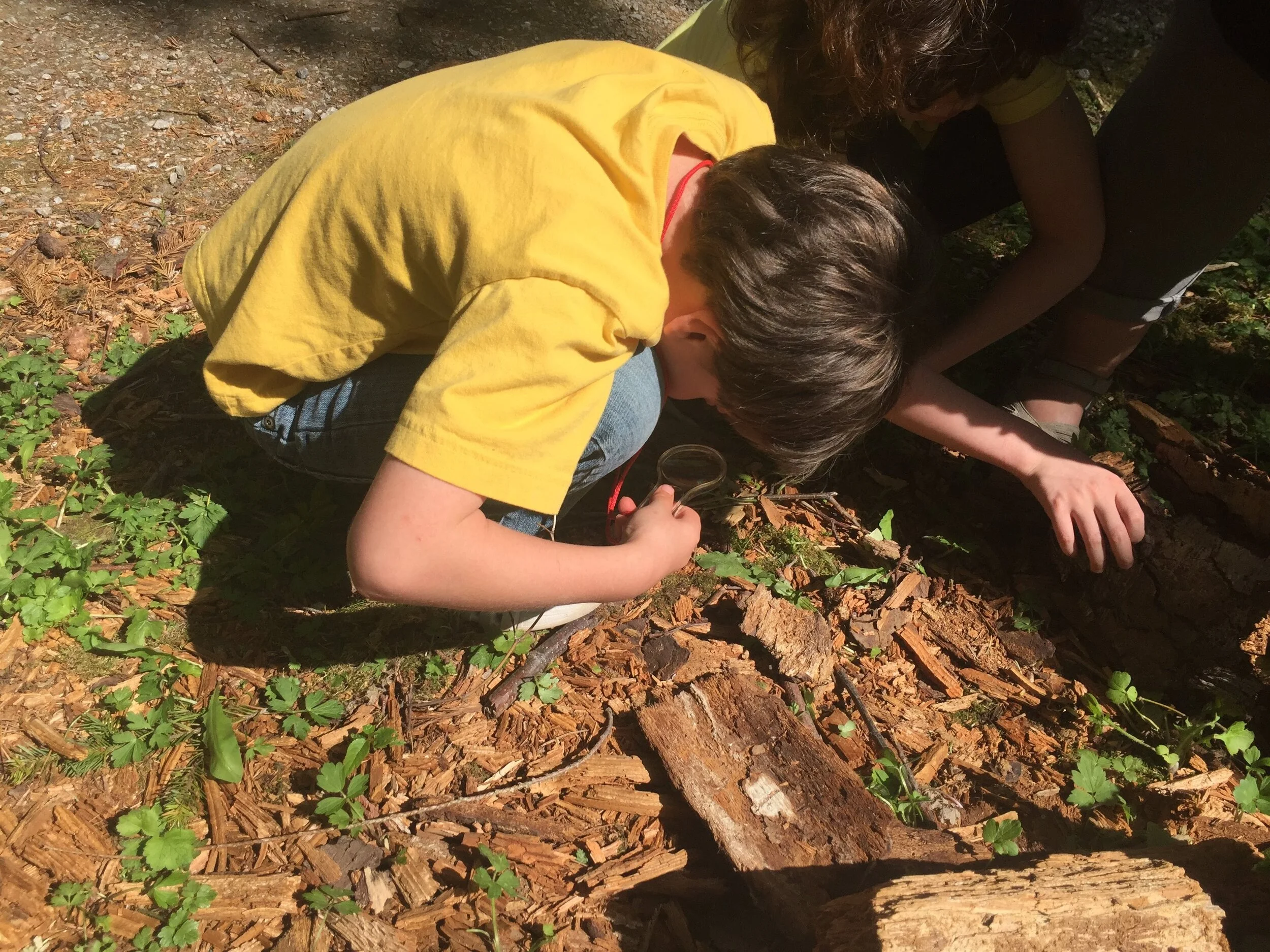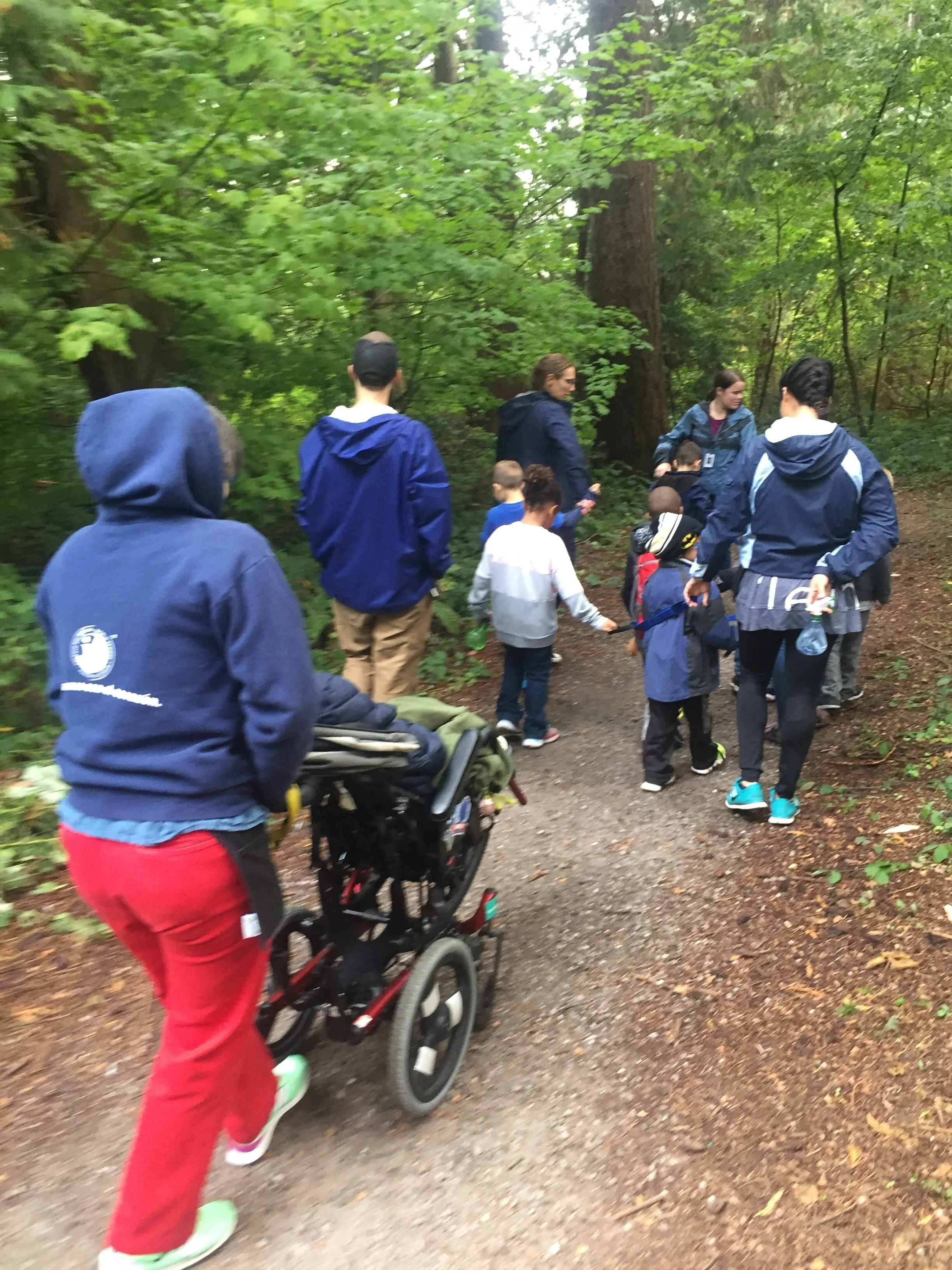SEED (Student Environmental Education & Discovery)
We work with public school teachers to integrate this program into the school day. Students do not register directly for this program.
Student Environmental Education and Discovery (SEED) is a collaborative project with Wild Whatcom, Bellingham Schools Life Skills Program, and the EBD (Emotionally/Behaviorally Disabled) “BRIDGES” program, funded through the generosity of foundations and individual donors.
We raise funds from donors, sponsors, and foundations to offer this program free to the public schools, teachers, parents, and students. Want to support this work? Donate today!
“SEED brings outdoor preparedness and appreciation of nature to a population of students who need it most but are often overlooked by the planners of science curriculum and experiential learning opportunities.”
Meeting IEP goals and creating lasting memories
With weekly outings, SEED provides meaningful outdoor experiences to students with disabilities who otherwise rarely have opportunities to use nature-based experiences as a tool for growth and development. Students explore nature and learn to feel comfortable in new environments, while strengthening capacities in a variety of areas such as:
Safety and comfort exploring outdoors
Physical endurance
Sensory-motor integration
Individual and group socio-emotional growth
Wild Whatcom’s SEED program was specifically designed to support Life Skills and BRIDGES students in our community. SEED brings classrooms outside on a weekly or bi-weekly basis for 90 minutes to learn, explore, play, and grow together in nearby natural spaces, while also helping students progress on Individual Education Plan (IEP) goals.
For example, many Life Skills students focus on Individual Education Plan (IEP) goals related to daily living, mobility, and adaptability. Within the SEED program, students learn how to be prepared for field trips, practice fine and gross motor skills in an outdoor setting, and practice adapting to and being comfortable in dynamic environments. Wild Whatcom curriculum also incorporates opening and closing circles as well as an “attitude of gratitude” that helps SEED students practice communication with peers, self reflection, and group communication skills.
“Students are engaged and learn so much outside. Outing content relates to basic kindergarten/1st grade skills, and can also be tied into specific IEP goal areas.”
Bringing science and enrichment to under-served students
In addition to supporting social and emotional learning skills, SEED incorporates science-based activities to introduce or reinforce science concepts taught in the classroom. We have heard directly from teachers that Life Skills students may receive minimal to no exposure to science throughout their K-12 academic experience, and that the SEED program offers an approachable way to bring these lessons to students at all cognitive levels.
For example, one of SEED’s lesson plans introduces fungus and decomposition through a range of activities from a basic mushroom scavenger hunt to spore prints and decomposition timelines, tailored to the abilities of the classroom at hand.
“SEED is the only exposure to science lessons that most of my students get. I love that students learn new things at SEED that they would not learn otherwise. It is always a positive experience for my students and staff.”
History and collaboration
Wild Whatcom began the SEED program with one pilot classroom--Sehome High School’s Life Skills classroom—in the 2015/16 academic year. After successful reports from the teacher and students, we have expanded year after year and now serve nine classrooms across seven schools with four classrooms on our waitlist. Most academic years, we provide more than 2,000 “nature hours” for students.
This program is made possible through the collaboration of Wild Whatcom’s experienced staff with Bellingham Public Schools’ Life Skills teachers and paraeducators. Wild Whatcom’s Schools Program Manager and Field Mentors bring a wealth of experience and expertise in outdoor education, behavior management, and risk management, which pairs with the skills of each classroom teacher. Teachers work directly with our field staff to modify programming to adjust to the needs of the students each day, and each Life Skills classroom also has two to ten or more paraeducators (depending on the size and need of the class), who work directly with individual students and help to adapt teachings to fit the communication abilities and skill levels of each student.
“I have students who are profoundly impacted by their disabilities. Many of them do not have opportunities to take time to just be in nature and experience all of the sights and sounds. Through this program, my students were able to interact with and learn about the world around them which truly impacted the way they see the world. I am so grateful to be a part of Wild Whatcom.”
funders and supporters
This program is entirely funded through grants, sponsorships, and donations. We are grateful to our community of donors and funders who help to bring more underserved students outdoors to learn, play, and grow! Past funders have included:
This program was one of the first to receive funding through the statewide No Child Left Inside initiative. To celebrate this success, we got a special visit from Governor Inslee!
Governor Inslee visits our team in 2015 to celebrate the No Child Left Inside grant award that helped us launch this program.
Get involved
Do you have any questions, would like to fund or sponsor this program, or are a teacher hoping to participate? Reach out to our School Programs team at schoolprograms@wildwhatcom.org.
Are you inspired by this program? Consider a donation today!









